National
2012 could prove landmark year for marriage rights
Will Washington, New Jersey, Maryland legalize gay nuptials?

This could be a landmark year in the marriage equality movement, as several states appear close to enacting marriage rights for gay and lesbian couples.
Advocates are working to legalize marriage rights for gay couples in Washington State, Maryland and New Jersey; efforts are also underway to pursue civil unions in Colorado. Meanwhile, opponents are hoping to repeal same-sex marriage in New Hampshire.
Washington State could be in the strongest position among other states where advocates are undertaking efforts to legalize marriage equality. The legislation was introduced last week by request from Gov. Chris Gregoire (D), who announced her support in a news conference Jan. 4.
“I’m announcing my support for a law that gives our same-sex couples in our state the right to receive a marriage license in Washington — the same right given to our heterosexual couples,” Gregoire said. “It is time, it’s the right thing to do — and I will introduce the bill to make it happen.”
The number of co-sponsors for the legislation in the House already exceeds the votes needed for passage there. In the Senate, the legislation has 23 co-sponsors, which is two supporters short of 25 votes needed for passage.
Josh Friedes, marriage equality director for Equal Rights Washington, said he’s “really delighted” with the level of support the legislation has found upon introduction — especially from two Republican state senators who’ve already signed on in support.
“That was really important because it shows Republicans in Washington State that the moral arc is bending toward support for marriage,” Friedes said.
The Washington State Legislature is meeting only for a 60-day period this year, so if legislation is to make it to Gregoire’s desk, the marriage bills would have to pass by March 8. Per legislative rules, one version of the legislation would have to pass either the House or Senate by Feb. 14. Committee hearings are scheduled Monday.
In Maryland, Gov. Martin O’Malley is set to introduce marriage equality legislation as part of his legislative package for 2012. Last year, the bill legislation passed the Senate, but advocates pulled the bill from the House floor after they determined they didn’t have enough votes for passage.
Lesbian Del. Mary Washington (D-Baltimore City) said chances for passage in the House have “greatly improved” now that O’Malley has made marriage a legislative priority.
“We’ve had the whole summer to talk to people, we’ve got more people involved and I think it will have a better shot,” Washington said.
Washington added that assigning the bill jointly to two panels — the Health & Government Operations Committee and the Judiciary Committee — would broaden the number of lawmakers who will hear testimony on marriage.
“I think as more delegates get to see what impact the current exclusion of gays and lesbians from the right to marry is doing for Maryland families, I think they’ll understand that passing civil marriage will be the right thing to do,” Washington said.
As far as timing for the vote, Washington said she thinks the vote on the marriage bill will take place before March — when it happened last year — because of the heavy workload lawmakers face this time around.
But Washington State and Maryland will face additional challenges even if the governors in those states sign the marriage legislation into law because residents there could put the measures on the ballot in November through a voter-initiated referendum process.
In Washington State, the signatures needed to bring a measure to referendum is 4 percent of the total votes from the last gubernatorial election, which in terms of absolute numbers would be 120,577 names. In Maryland, a total of just 55,736 signatures is necessary to put a law on the ballot in the upcoming election.
Washington said a referendum on the marriage bill in Maryland is a possibility for which advocates of same-sex marriage must prepare.
“I’m hoping that it doesn’t go to referendum, but if it does, I’m confident the citizens of Maryland will know that it’s time for all families and people to be treated equally under the Maryland Constitution,” Washington said.
Friedes said advocates in Washington State are taking “nothing for granted” after previous losses of same-sex marriage at the ballot and encouraged LGBT families to talk to others there about “why marriage matters.”
“We need to grow the number of people who support marriage equality and make sure that those who do, vote,” Friedes said. “The thing that would hurt us the most is if people become over-confident.”
Another state where advocates are hoping for passage of same-sex marriage is New Jersey, where legislation was introduced last week in both chambers of the legislature. A Senate committee is set to hold a hearing on the legislation Tuesday and the Assembly is expected to have one afterward.
But New Jersey is unlike Washington State or Maryland in that its governor, Republican Chris Christie, campaigned on a promise to veto any such bill that reached his desk.
However, when asked about the marriage bill this month, Christie didn’t reiterate his pledge to veto and made comments suggesting that his tune may have changed on the issue.
“When forced to make a decision, if forced to make a decision on it, I’ll make a decision,” Christie reportedly told NJ.com in Camden, N.J.
Gay Assembly member Reed Gusciora (D-Princeton) said he “wouldn’t rule the governor out” as someone who would sign the marriage bill if it reaches his desk.
“In the last several weeks, he’s visited four out of the six states that have marriage equality: Iowa, New Hampshire, Massachusetts and New York,” Gusciora said. “I don’t think he saw any diminishment in the institution of marriage other than when Newt Gingrich was around.”
Gusciora added he thinks the legislation has a “good shot of passage” in the legislature and the bill should reach Christie’s desk by the end of February.
New Jersey has no voter-initiated referendum process, so if Christie signs or allows the legislation to become law, it’ll stay on the books.
In Colorado, advocates are pressing to push civil unions legislation into law. Last year, the legislation was approved by the Senate, but a House committee voted 6-5 against reporting it out to the floor.
Sarah Warbelow, state legislative director for the Human Rights Campaign, said the legislation will have to go through the Senate once again because the House committee voted to kill the bill last year.
“All indicators suggest had it gotten out of committee, it would have passed on the floor of the House, which is why advocates felt comfortable enough to really push to have it come up again rather than waiting until after elections and then having new legislators in place,” Warbelow said.
Warbelow added Colorado has a longer legislative session that extends until May, so the civil unions bill may not be acted upon as soon as the marriage bills in other jurisdictions.
Advocates are pursuing civil unions in Colorado as opposed to marriage rights because the state constitution has an amendment defining marriage as between one man and one woman.
While progress on relationship recognition could come in those states, there is also the potential for repeal of same-sex marriage in New Hampshire.
Gov. John Lynch (D), who signed marriage equality into law in 2009, has pledged to veto repeal, but the Republican supermajority of the legislature may have enough votes to override his veto.
Warbelow said the legislature is “highly likely” to pass the repeal legislation in the first round, but “all the effort” has been focused on making sure there aren’t enough votes to overturn Lynch’s veto.
The legislature has pushed back the timing for the repeal vote. According to the Eagle Tribune, House Majority Leader D.J. Bettencourt said he won’t bring up the repeal measure until February.
“We must deal with some critical financial and economic-related legislation first, as well as legislative redistricting, prior to any discussion of gay marriage,” Bettencourt was quoted as saying. “It’s critical to keep legislative priorities in their proper order.”
Other bills related to advancing marriage rights for same-sex couples could emerge in Illinois and Rhode Island; both states passed civil unions last year.
U.S. Federal Courts
Second federal lawsuit filed against White House passport policy
Two of seven plaintiffs live in Md.
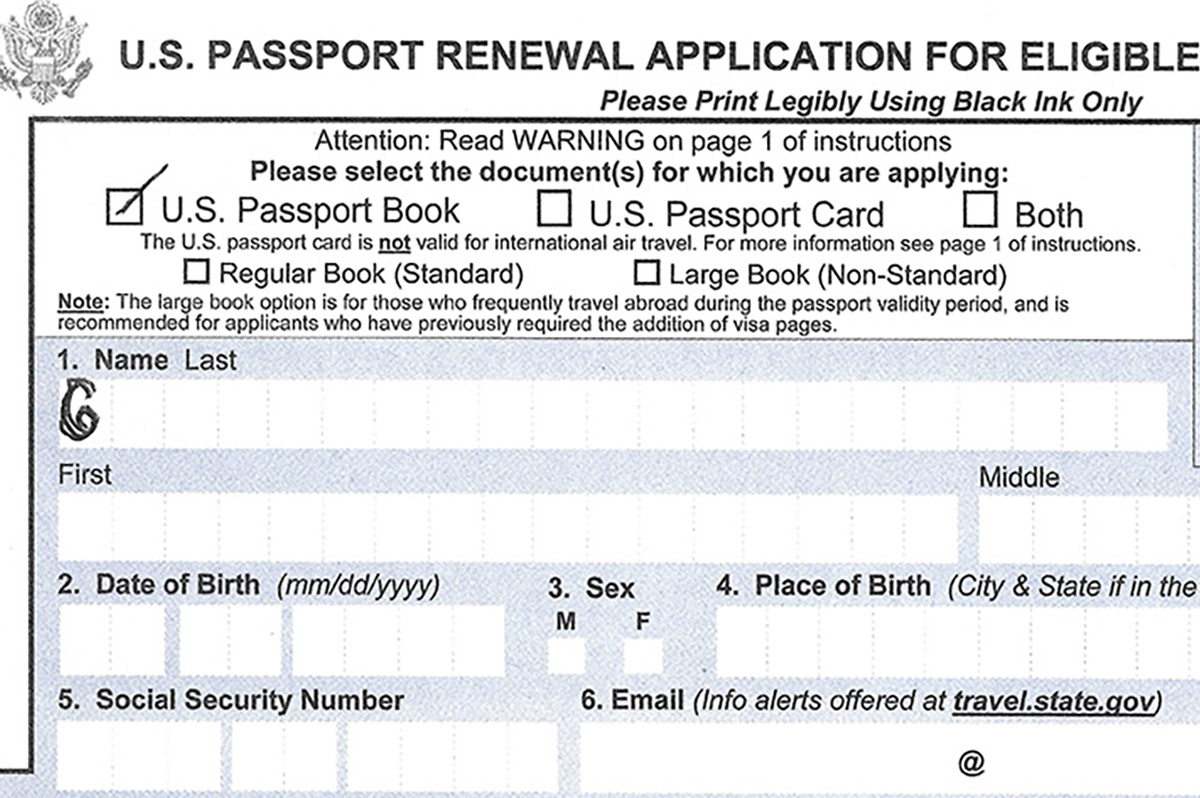
Lambda Legal on April 25 filed a federal lawsuit on behalf of seven transgender and nonbinary people who are challenging the Trump-Vance administration’s passport policy.
The lawsuit, which Lambda Legal filed in U.S. District Court for the District of Maryland in Baltimore, alleges the policy that bans the State Department from issuing passports with “X” gender markers “has caused and is causing grave and immediate harm to transgender people like plaintiffs, in violation of their constitutional rights to equal protection.”
Two of the seven plaintiffs — Jill Tran and Peter Poe — live in Maryland. The State Department, Secretary of State Marco Rubio, and the federal government are defendants.
“The discriminatory passport policy exposes transgender U.S. citizens to harassment, abuse, and discrimination, in some cases endangering them abroad or preventing them from traveling, by forcing them to use identification documents that share private information against their wishes,” said Lambda Legal in a press release.
Zander Schlacter, a New York-based textile artist and designer, is the lead plaintiff.
The lawsuit notes he legally changed his name and gender in New York.
Schlacter less than a week before President Donald Trump’s inauguration “sent an expedited application to update his legal name on his passport, using form DS-5504.”
Trump once he took office signed an executive order that banned the State Department from issuing passports with “X” gender markers. The lawsuit notes Schlacter received his new passport in February.
“The passport has his correct legal name, but now has an incorrect sex marker of ‘F’ or ‘female,'” notes the lawsuit. “Mr. Schlacter also received a letter from the State Department notifying him that ‘the date of birth, place of birth, name, or sex was corrected on your passport application,’ with ‘sex’ circled in red. The stated reason was ‘to correct your information to show your biological sex at birth.'”
“I, like many transgender people, experience fear of harassment or violence when moving through public spaces, especially where a photo ID is required,” said Schlacter in the press release that announced the lawsuit. “My safety is further at risk because of my inaccurate passport. I am unwilling to subject myself and my family to the threat of harassment and discrimination at the hands of border officials or anyone who views my passport.”
Former Secretary of State Antony Blinken in June 2021 announced the State Department would begin to issue gender-neutral passports and documents for American citizens who were born overseas.
Dana Zzyym, an intersex U.S. Navy veteran who identifies as nonbinary, in 2015 filed a federal lawsuit against the State Department after it denied their application for a passport with an “X” gender marker. Zzyym in October 2021 received the first gender-neutral American passport.
Lambda Legal represented Zzyym.
The State Department policy took effect on April 11, 2022.
Trump signed his executive order shortly after he took office in January. Germany, Denmark, Finland, and the Netherlands are among the countries that have issued travel advisories for trans and nonbinary people who plan to visit the U.S.
A federal judge in Boston earlier this month issued a preliminary injunction against the executive order. The American Civil Liberties Union filed the lawsuit on behalf of seven trans and nonbinary people.
Federal Government
HHS to retire 988 crisis lifeline for LGBTQ youth
Trevor Project warns the move will ‘put their lives at risk’

The U.S. Department of Health and Human Services is planning to retire the national 988 crisis lifeline for LGBTQ youth on Oct. 1, according to a preliminary budget document obtained by the Washington Post.
Introduced during the Biden-Harris administration in 2022, the hotline connects callers with counselors who are trained to work with this population, who are four times likelier to attempt suicide than their cisgender or heterosexual counterparts.
“Suicide prevention is about risk, not identity,” said Jaymes Black, CEO of the Trevor Project, which provides emergency crisis support for LGBTQ youth and has contracted with HHS to take calls routed through 988.
“Ending the 988 Suicide and Crisis Lifeline’s LGBTQ+ youth specialized services will not just strip away access from millions of LGBTQ+ kids and teens — it will put their lives at risk,” they said in a statement. “These programs were implemented to address a proven, unprecedented, and ongoing mental health crisis among our nation’s young people with strong bipartisan support in Congress and signed into law by President Trump himself.”
“I want to be clear to all LGBTQ+ young people: This news, while upsetting, is not final,” Black said. “And regardless of federal funding shifts, the Trevor Project remains available 24/7 for anyone who needs us, just as we always have.”
The service for LGBTQ youth has received 1.3 million calls, texts, or chats since its debut, with an average of 2,100 contacts per day in February.
“I worry deeply that we will see more LGBTQ young people reach a crisis state and not have anyone there to help them through that,” said Janson Wu, director of advocacy and government affairs at the Trevor Project. “I worry that LGBTQ young people will reach out to 988 and not receive a compassionate and welcoming voice on the other end — and that will only deepen their crisis.”
Under Trump’s HHS secretary, Robert F. Kennedy, Jr., the agency’s departments and divisions have experienced drastic cuts, with a planned reduction in force of 20,000 full-time employees. The Substance Abuse and Mental Health Services Administration has been sunset and mental health services consolidated into the newly formed Administration for a Healthy America.
The budget document reveals, per Mother Jones, “further sweeping cuts to HHS, including a 40 percent budget cut to the National Institutes of Health; elimination of funding for Head Start, the early childhood education program for low-income families; and a 44 percent funding cut to the Centers for Disease Control, including all the agency’s chronic disease programs.”
U.S. Supreme Court
Supreme Court hears oral arguments in LGBTQ education case
Mahmoud v. Taylor plaintiffs argue for right to opt-out of LGBTQ inclusive lessons

The U.S. Supreme Court on Tuesday heard oral arguments in Mahmoud v. Taylor, a case about whether Montgomery County, Md., public schools violated the First Amendment rights of parents by not providing them an opportunity to opt their children out of reading storybooks that were part of an LGBTQ-inclusive literacy curriculum.
The school district voted in early 2022 to allow books featuring LGBTQ characters in elementary school language arts classes. When the county announced that parents would not be able to excuse their kids from these lessons, they sued on the grounds that their freedom to exercise the teachings of their Muslim, Jewish, and Christian faiths had been infringed.
The lower federal courts declined to compel the district to temporarily provide advance notice and an opportunity to opt-out of the LGBTQ inclusive curricula, and the 4th U.S. Circuit Court of Appeals determined that the parents had not shown that exposure to the storybooks compelled them to violate their religion.
“LGBTQ+ stories matter,” Human Rights Campaign President Kelley Robinson said in a statement Tuesday. “They matter so students can see themselves and their families in the books they read — so they can know they’re not alone. And they matter for all students who need to learn about the world around them and understand that while we may all be different, we all deserve to be valued and loved.”
She added, “All students lose when we limit what they can learn, what they can read, and what their teachers can say. The Supreme Court should reject this attempt to silence our educators and ban our stories.”
GLAD Law, NCLR, Family Equality, and COLAGE submitted a 40-page amicus brief on April 9, which argued the storybooks “fit squarely” within the district’s language arts curriculum, the petitioners challenging the materials incorrectly characterized them as “specialized curriculum,” and that their request for a “mandated notice-and-opt-out requirement” threatens “to sweep far more broadly.”
Lambda Legal, the Leadership Conference on Civil and Human Rights, PFLAG, and the National Women’s Law Center announced their submission of a 31-page amicus brief in a press release on April 11.
“All students benefit from a school climate that promotes acceptance and respect,” said Karen Loewy, senior counsel and director of constitutional law practice at Lambda Legal. “Ensuring that students can see themselves in the curriculum and learn about students who are different is critical for creating a positive school environment. This is particularly crucial for LGBTQ+ students and students with LGBTQ+ family members who already face unique challenges.”
The organizations’ brief cited extensive social science research pointing to the benefits of LGBTQ-inclusive instruction like “age-appropriate storybooks featuring diverse families and identities” benefits all students regardless of their identities.
Also weighing in with amici briefs on behalf of Montgomery County Public Schools were the National Education Association, the ACLU, and the American Psychological Association.
Those writing in support of the parents challenging the district’s policy included the Center for American Liberty, the Manhattan Institute, Parents Defending Education, the Alliance Defending Freedom, the Trump-Vance administration’s U.S. Department of Justice, and a coalition of Republican members of Congress.
-
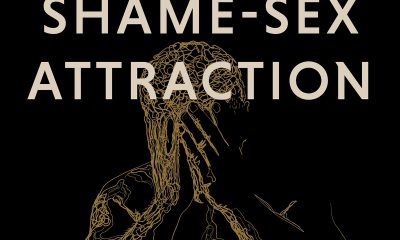
 Books4 days ago
Books4 days agoChronicling disastrous effects of ‘conversion therapy’
-
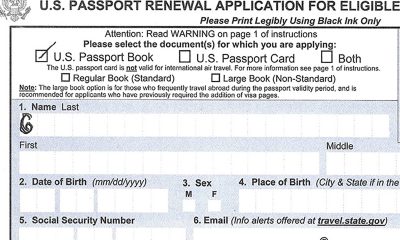
 U.S. Federal Courts3 days ago
U.S. Federal Courts3 days agoSecond federal lawsuit filed against White House passport policy
-
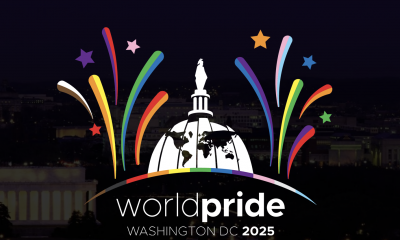
 Opinions3 days ago
Opinions3 days agoWe must show up to WorldPride 2025 in D.C.
-
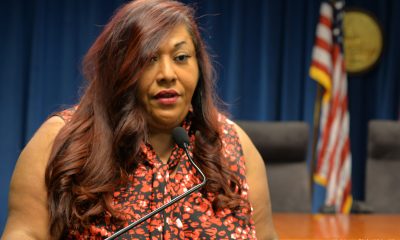
 District of Columbia3 days ago
District of Columbia3 days agoRuby Corado sentencing postponed for third time











